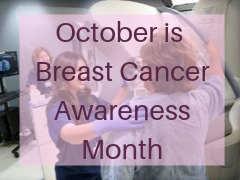
Liz Blackler, MBE, LCSW
Members of MSK’s Ethics Consultation Service recently reported on their experiences at the epicenter of the COVID pandemic in a JCO Oncology Practice article. I asked Liz Blackler, MBE, LCSW, a co-author and bioethicist who works full time on the Service, to tell me more about the article’s findings and the experiences of the Service in March and April, when requests for consultations more than doubled compared to the year prior.
MSK’s Ethics Consultation Service is made up of 10 consultants—psychiatrists, nurses, nurse practitioners, physician assistants, attending physicians, and social workers. These professionals, explained Ms. Blacker, “help mitigate [ethical] conflict in the hospital amongst staff and between patients and family members and their medical teams.”
“As a cancer hospital,” said Ms. Blackler, “we routinely manage end-of-life issues. We have a compassionate, empathetic staff who know how to handle these situations. But, in the midst of a pandemic, managing day-to-day care with no family at the bedside caused a lot of emotional distress for our staff.” Not only were they inundated by constant pandemic-related news, “they were living it day to day in the hospital.”
There were strict visitor restrictions. Staff often could not get in touch with family members of patients, and sometimes family members were also sick and unable to answer questions about care decisions. “There were real reasons why visitors were restricted,” said Ms. Blackler. “But in the setting of more PPE [personal protective equipment] and with more knowledge of how COVID is transmitted, we would want to lift or modify visitor restrictions.” Now, most patients can have one visitor.
Two issues arose that were new to the Ethics Consultation Service. The first was staff concern for their own safety. As Ms. Blackler related, “There was a level of staff distress, staff was worried about putting themselves at risk. This was early in the pandemic, when there were questions about transmission and the amount of PPE available.”
The second issue arose when patients wanted to leave the hospital. “All this was new for us,” said Ms. Blackler. “The issue was real—do we let patients leave against medical advice if we know they could potentially spread COVID to someone else?” In the end, the Ethics Consultants and medical teams encouraged patients to stay at MSK until a safe plan could be established or they tested negative for COVID.
The Ethics Consultation Service found new ways of offering support while working primarily offsite. Rather than waiting for consultation requests, Service members began offering virtual office hours twice a week for two hours at a time. “There was so much uncertainty. Just having a regular outlet was really helpful for staff,” said Ms. Blackler. “I would encourage other institutions to do that. It diffused issues before they became ethical conundrums and lowered the anxiety of staff.”
 October is Breast Cancer Awareness Month, and MSK experts have been speaking to news sources on topics related to this too-common cancer. This includes a recent piece from Today about disparities in breast cancer care for Black women.
October is Breast Cancer Awareness Month, and MSK experts have been speaking to news sources on topics related to this too-common cancer. This includes a recent piece from Today about disparities in breast cancer care for Black women.